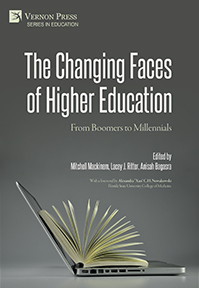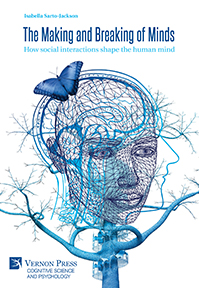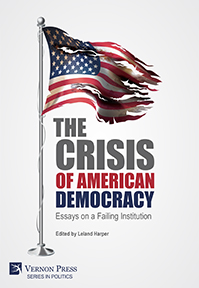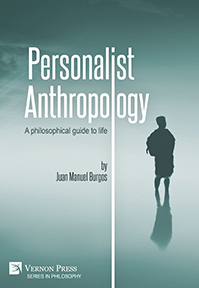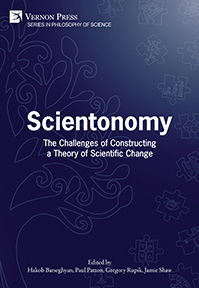Search
Browse
by Publication status
by Subject
Anthropology (26) Art (171) Business and Finance (38) Cognitive Science and Psychology (63) Communication and Journalism (51) Economics (116) Education (71) History (169) Human Geography (23) Interdisciplinary (43) Language and Linguistics (178) Law (16) Music Studies (18) Philosophy (222) Political Science and International Relations (127) Sociology (404) Statistics and Quantitative Methods (21)by Series
Series in Literary Studies (62) Series in Philosophy (57) Series in Education (49) Series in Sociology (42) Series in World History (31) Series in Politics (30) Bridging Languages and Scholarship (26) Series in Language and Linguistics (25) Cognitive Science and Psychology (20) Series in Philosophy of Religion (20) Series in American History (19) Series in Art (19) Critical Perspectives on Social Science (16) Series in Cinema and Culture (16) Curating and Interpreting Culture (15) Series on the History of Art (14) Series in Anthropology (13) Series in Critical Media Studies (13) Economics (13) Series in Business and Finance (12) Series in Music (12) Series in Performing Arts (9) Philosophy of Personalism (8) Series in Communication (8) Series in Law (8) Series in Economic Methodology (7) Series on Climate Change and Society (7) Classics in Economics (6) Series in Economic Development (6) Women's Studies (6) Philosophy of Forgiveness (5) Series in Built Environment (5) Series in Economic History (5) Series in Philosophy of Science (4) Series in Social Equality and Justice (4) Series on the History of Science (4) Serie en Sociología (3) Series in Contemporary History (3) Series in Creative Writing Studies (3) Series in Design (3) The Interdisciplinary Built Environment (3) Series in Heritage Studies (2) Series in Innovation Studies (2) Serie en Ciencias Políticas (1) Serie en Comunicación y Medios (1) Serie en Entorno Construido (1) Serie en Estudios Culturales (1) Serie En Estudios Literarios (1) Serie en Filosofía (1) Serie en Música (1) Series in Classical Studies (1) Series in Economics of Technological Change (1) Series in Philosophy of Race (1) Series in Urban Studies (1)by Language
English Spanishby Author
Browsing with filters

The Changing Faces of Higher Education
From Boomers to Millennials
Edited by
Mitchell B. Mackinem, Wingate University et al.
Availability: In stock
272pp. ¦ $84 £65 €72
In a time of rapid change and arising challenges, Millennials are the latest generation to enter high education institutions as junior faculty, administrators, researchers, and scholars. As with each generation they bring new values, perspectives, technological expertise, and expectations. Higher education is facing potentially overwhelming challenges in finances, student debt, relevance, non-traditional hiring, with some institutions facing closure. Academic leaders, often Baby Boomers, attempt to meet these challenges while still tied to traditions from a bygone time. The Changing Faces of Higher Education gives voice to Millennial academics and their perspective of higher education. This thought-provoking volume provides the insights and lessons from Millennials working in higher education across various subfields. The contributing authors speak from divergent institutions including small mid-western private colleges to larger East coast public institutions and many locations in-between. The contributing authors are not limited to faculty but covers a range of professionals working in higher education. While diverse, all the authors focus on the challenges in teaching, mentorship, and leadership, challenges related to diversity, and improving technology and research. The thirteen chapters in this book address ongoing challenges faced by Millennials working in higher education, offers advice and best practices, and addresses the ways that Millennials serve as a bridge between their “Boomer” colleagues and Gen Z who make up the majority of currently enrolled college students. Each chapter presents the experiences of the author(s) and the strategies utilized to navigate the increasingly fast changing landscape of higher education.
The Making and Breaking of Minds: How social interactions shape the human mind
Isabella Sarto-Jackson, Konrad Lorenz Institute for Evolution and Cognition Research, Austria
Availability: In stock
292pp. ¦ $63 £47 €54
The human brain has a truly remarkable capacity. It reorganizes itself, flexibly adjusting to fluctuating environmental conditions – a process called neuroplasticity. Neuroplasticity provides the basis for wide-ranging learning and memory processes that are particularly profuse during childhood and adolescence. At the same time, the exceptional malleability of the developing brain leaves it highly vulnerable to negative impact from the surroundings. Abusive or neglecting social environments, as well as socioeconomic deprivation and poverty, cause toxic stress and complex traumas that can severely compromise cognitive development, emotional processing, self-perception, and executive brain functions. The neurophysiological changes entailed impair emotional regulation, lead to heightened anxiety, and afflict attachment and the formation of social bonds. Neuroplastic changes following severely adverse experiences are not something that a person grows out of and gets over. These experiences alter the neurobiological and biochemical makeup and cause people to live in an emotionally relabeled world in which the evaluation of any social cue, their behavior, cognition, and state of mind are biased towards the negative. Even more worrying, detrimental neurophysiological consequences are not limited to the traumatized individual but are often transmitted to subsequent generations through a process of social niche construction, thereby creating a vicious cycle. Thus, the making and breaking forces of the brain are epitomized by parents, alloparents, peers, and our socioeconomic niche. This book expounds on the formative role that the social environment plays in healthy brain development, especially during infancy, childhood, and adolescence. Based on scientific findings, the book advocates for bold measures and responsible stewardship to combat child abuse, maltreatment, and child poverty. By bringing together insights from neuroscience, evolutionary biology, and social education work, it lays out a fact-based, transdisciplinary endeavor that aims at rising to the societal challenge of providing a rewarding perspective to youth at risk. It will be a valuable resource for academics from social education, pedagogy, cognitive science, neuroscience, as well as professionals in the fields of social work, pedagogy, education, child welfare.
The Crisis of American Democracy: Essays on a Failing Institution
Edited by
Leland Harper, Siena Heights University
Availability: In stock
239pp. ¦ $76 £61 €67
The essays in “The Crisis of American Democracy: Essays on a Failing Institution” seek to answer central questions about American democracy, such as: if American democracy is failing, what are the causes of this failure? What are the consequences? And what can be done to fix it? These standalone essays present diverse perspectives on some of the impediments to achieving a true democracy in the present-day United States of America, as well as prescriptions for overcoming these obstacles. Leading academics from across North America, contribute their perspectives on this timely debate.
Personalist Anthropology: A philosophical guide to life
Juan Manuel Burgos, Universidad Villanueva, Spain
Availability: In stock
311pp. ¦ $64 £47 €53
Philosophical personalism has generated a very powerful field of study in the twentieth and twenty first centuries but has not produced a systematic exposition. This book fills this big gap by offering for the first time a full systematic personalistic vision of the human person. This ambitious volume offers a pedagogical and integrated exposition of philosophical personalism, answering vital questions about human identity and existence in a way that the reader (or student) can achieve an integrated view of the person. The book points to the real life of each person so that, by partially unraveling the mystery of the personal being, it becomes a philosophical guide for life. For these reasons, the book can be used both for academic purposes, as a manual of philosophy of man or for personal enlightenment. Divided in five parts, the first part of the book works as an introduction, offering an overview of the human person and of the notion of person. The second part describes the internal structure of the human being addressing topics as corporeity as a personal fact; sensibility and the senses; affectivity; intelligence; freedom understood as choice and self-determination and, finally, the personal self. The third part analyses the person in action and some special types of action such as work and language. The fourth part deals with interpersonal relationships beginning with I-You relationship (friendship, love) and following with the family and the social structure. Finally, part five deals with the so-called ultimate questions, that is, those that decide the final meaning of each person’s life, namely, time, death, immortality, and religion.
Scientonomy: The Challenges of Constructing a Theory of Scientific Change
Edited by
Hakob Barseghyan, University of Toronto et al.
Availability: In stock
281pp. ¦ $84 £65 €72
During the so-called ‘historical turn’ in the philosophy of science, philosophers and historians boldly argued for general patterns throughout the history of science. From Kuhn’s landmark "Structure of Scientific Revolutions" until the "Scrutinizing Science" project led by Larry Laudan, there was optimism that there could be a general theoretical approach to understanding the process of scientific change. This optimism gradually faded as historians and philosophers began to focus on the details of specific case studies located within idiosyncratic historical, cultural, and political contexts, and abandoned attempts to uncover general patterns of how scientific theories and methods change through time. Recent research has suggested that while we have learned a great deal about the diversity and complexity of scientific practices across history, the push to abandon hope for a broader understanding of scientific change was premature. Because of this, philosophers, historians, and social scientists have become interested in reviving the project of understanding the mechanism of scientific change while respecting the diversity and complexity that has been unveiled by careful historical research over the past few decades. The chapters in this volume consider a particular proposal for a general theory of how scientific theories and methods change over time, first articulated by Hakob Barseghyan in "The Laws of Scientific Change" and since developed in a series of papers by a variety of members of the scientonomy community. The chapters consider a wide range of issues, from conceptual and historical challenges to the posited intellectual patterns in the history of science, to the possibility of constructing a general theory of scientific change, to begin with. Offering a new take on the project of constructing a theory of scientific change and integrating historical, philosophical, and social studies of science, this volume will be of interest to historians, philosophers, and sociologists of science.

